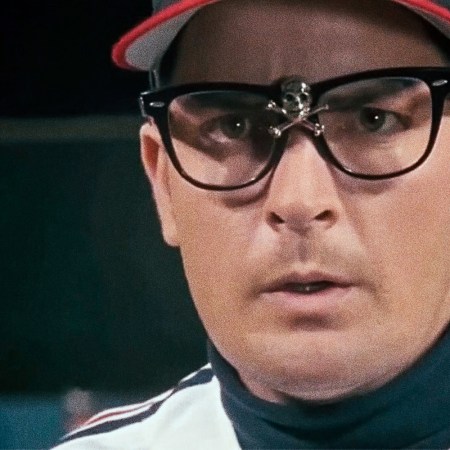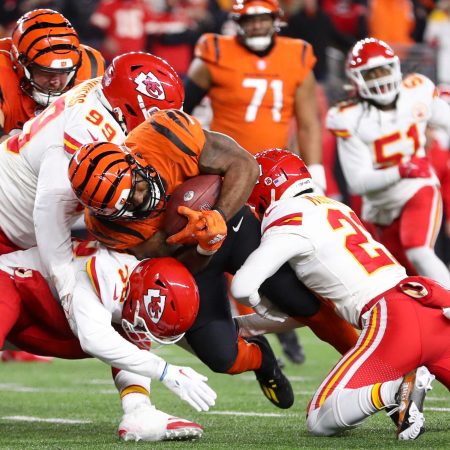What do you look for in a song? I’ve spent years asking myself this. Am I a lyrics guy? Is it the actual music, like the piano or guitar or whatever instrument is leading the pack? Does it have to be one or the other? Can it be a case-by-case scenario? If so, out of the countless hours I’ve spent in my lifetime with the headphones on or a record playing nearby, has one musician or group brought me more happiness overall? Can I trawl through, say, Aretha Franklin’s catalog and find more to like versus Prince or Neil Young? Do I like more than 75 percent of Bruce Springsteen’s recorded output? How many times have I actively listened to Pavement albums all the way through?
As I filter through all the music I’ve listened to in my life, two bands comes up each and every time. The Velvet Underground is one. That should make sense. Didn’t everybody who heard their first record when it came out go and start a band? Isn’t that the myth? The next three albums are all track for track pretty much as perfect as they get. That last album, Squeeze, we’re not counting that one. Then there’s the fact that Lou Reed and John Cale both put out a handful of nearly-as-perfect solo albums (and let’s not forget some of the stuff Moe Tucker did in the ‘80s with her old bandmates and members of Sonic Youth helping her out — also golden), and overall, it’s difficult for me to find a band that I mesh with as well as the Velvets. They are the total package: I love the music and Reed’s whole journalism major-turned-poet laureate of downtown Manhattan thing, which helped him write some of the best lyrics in the American rock songbook. If you say you like music but you don’t like the Velvet Underground, well, then I question everything about you.
On the other hand, if you tell me you don’t like Steely Dan, the other band I pair with the Velvet Underground on my short-list of musicians who I think I truly get, I’ll understand. A lot of people don’t like Steely Dan. That has been made obvious time and time again. Most recently, it was one of the most famous art critics in America, Jerry Saltz, taking a dump on the group. Like Billy Joel, another famously disliked famous songwriter who found fame in the 1970s, trashing Steely Dan is practically a sport.
The thing is, I’ve never quite been able to understand the hate. Even in my younger and punker days, I dug the Dan. I had to go into hiding, not really letting on that when “Do it Again” came on the classic rock station, I was singing along in my head while the other kids my age were making fun. There was always something cool about them that I couldn’t quite explain. Maybe it started with my friend’s dad and his gold 1986 Porsche 930 that he got to keep in the divorce (a very Steely Dan-esque sort of thing) that always smelled like weed and Polo cologne. He had a few cassette tapes that I can recall: Spandau Ballet’s True, Marquee Moon by Television and Gaucho by Steely Dan. The dad was a big shot just a few years earlier; a developer or something like that. By the end of the ‘80s, though, he’d lost just about everything: his wife, his kids, his business. But he kept the Porsche. The reasons for the split, according to village chatter, ranged from drinking to drugs to he couldn’t keep his dick in his pants, a typical ‘80s excess thing. It all sounds sad, but if you got to ride around with this guy in his Porsche, you’d think the opposite. To me around the age of 9 or 10, the guy was cool as hell.
Yet I wonder now if he even listened to the songs on Gaucho, an album which turns 40 this month and the record that made me understand just how great Walter Becker and Donald Fagen truly were. Many of the songs could have very well been about a guy in his exact situation. Life imitating art, or whatever.
Of course, this is Steely Dan we’re talking about, so the record took two years and nearly 50 studio musicians to make; that’s the sort of thing you routinely hear when talking about the band. It’s fine to obsess over that point the way Becker and Fagen did when it came to getting the exact perfect sound. But what’s overlooked is just how well they told a story, the way they created characters and scenarios not unlike, yes, Lou Reed did with some of his most famous Velvet Underground songs. Except instead of Reed writing about actual cool people who may have hung around Andy Warhol in the back of Max’s Kansas City, Steely Dan writes about people who think they’re hip. These characters are more in line with another famous, brilliant, hilarious and cynical musician who found fame in the 1970s: Warren Zevon. The people in Zevon’s “Lawyers, Guns and Money,” for instance, feel like they’d fit right at home among the collection of screw-ups you find in Steely Dan songs.
The band’s seventh album in under a decade, and last until 2000’s Two Against Nature, Gaucho sets itself apart from the rest of the band’s output with just how seamless it is despite a historically difficult production process. It’s a moody album, a loose concept record looking at a bunch of people whose best days are behind them but maybe don’t want to admit it. As Alex Pappademas wrote for Pitchfork, “The only character who’s having any kind of communal fun is the coke dealer on ‘Glamour Profession,’ who makes calls from a basketball star’s car phone and takes meetings over Mr. Chow dumplings with ‘Jive Miguel…from Bogotá.’’ People being past their prime honestly never sounded so good.
And that’s really why Gaucho celebrating its 40th comes at such a perfect time. The record hits middle age just when all of us are reduced to our barebones selves. We’re all just sitting around in our sweatpants thinking about how good things were back in the day, even if that was less than a year ago. There were brighter nights in the past, and we’re hopeful we’ll see their kind again. But for now, we’re all sort of boring and uncool. Listening to Gaucho just makes it all seem a bit more tolerable.
This article was featured in the InsideHook newsletter. Sign up now.






















